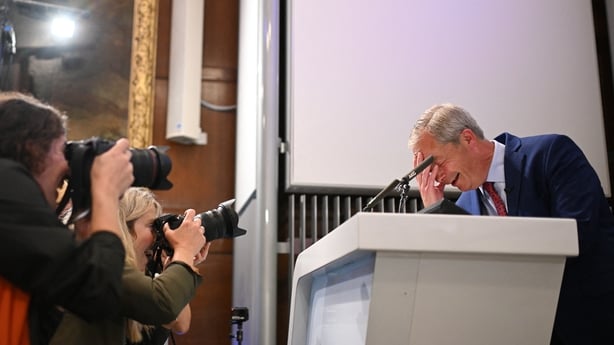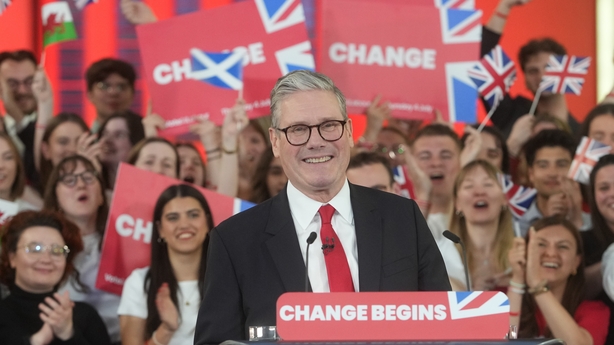What's eye-catching about this election isn't just Labour's massive landslide victory, but how they got there.
Labour was in bad shape after the last general election in 2019, securing just 203 seat - its lowest in more than 80 years.
And while the seat count this time around for Labour is dramatically higher (412 in 2024 vs 203 in 2019), the vote share is not.
Keir Starmer's party won a 33.8% share of the vote, which is just 1.6% higher than what it ended up with five years ago.

That's one of the anomalies of the first-past-the-post voting system. The proportion of the vote won by a party can be massively different to the proportion of seats that party wins in parliament.
The UK consists of 650 one-seat constituencies. There's only one round of voting, so with no votes being transferred to other candidates in additional rounds, any vote share for a candidate that doesn't win is essentially wasted when it comes to counting towards the overall seat count.
And while Labour's vote share in individual constituencies didn't really shift in this election, it didn't need to for them to turn around a lot of the majorities the Conservatives held over them from the last vote in 2019.
That's mainly because the vote share on the right of the political spectrum has become hugely fragmented, with the rise of Nigel Farage's Reform UK as a political force.
Reform has become a huge thorn in the Tories' side, after Mr Farage took over the leadership reins and ran as a candidate in the election.

The party appealed to disaffected Conservative voters during the campaign, and it appears to have worked.
Mr Farage overturned a Conservative majority of over 25,000 to comfortably win a seat in Clacton.
Reform also gained two other seats from the Tories, while former Conservative MP Lee Anderson - who defected to Reform in March - retained his seat.
The party drew considerable support in areas where the Conservatives won in 2019, finishing second in many constituencies.
That's what did the damage to the Conservatives, and made Labour's win so emphatic.
In this election each of the parties contested almost every constituency - that's something that hasn't happened before in a UK general election.
In many of those seats, if the Conservative and Reform vote share were combined, it would have been enough to beat the respective Labour (or in some cases Liberal Democrat) candidate.
But the fact the vote on the right was split meant that with just one seat in each constituency, the Conservatives - as the largest party on the right - were the main one to lose out.

This also explains to a large extent why Reform won over 14% of the national vote but just five out of 650 seats at Westminster - a lot of second place finishes will do that!
Whereas the Liberal Democrats won 12% of the vote in this election (up just 0.6% on 2019), but eclipsed Reform's seat numbers, winning 71 versus five.
The Lib Dems managed to target their vote more successfully than Reform, to ensure they either won a seat in a constituency or didn't really feature.
As the results bear out, that's a much more efficient strategy in the UK's volatile first-past-the-post voting system.
However, despite the low seat return for Reform, the high vote share suggests the party may be becoming a serious player in British politics.
Reform won more than four million votes, and is now the third largest party in the UK by vote share.
This comes from a base of a 2% vote share and zero seats when Reform was called the Brexit Party in the 2019 election (it rebranded as Reform after the UK left the EU).
And in a further warning to the Tories, Nigel Farage said today that "there's a massive gap on the centre-right of British politics and my job is to fill it".







